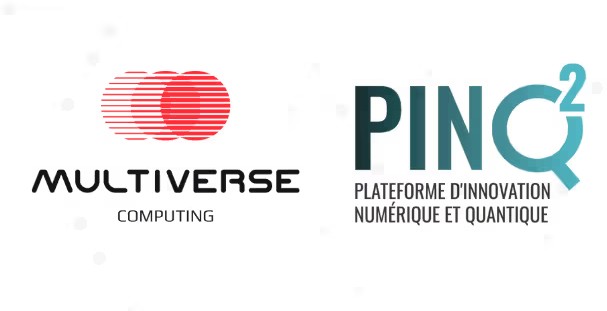Insider Brief
- Q.Ant will introduce a new sensor that can measure electrical currents via their magnetic field enabling native and intuitive access to biosignals.
- The miniature sensor is suitable for everyday use, which means it could control prostheses or Web3 avatars via muscle signals.
- Q.ANT is a startup founded in 2018 as a spin-off of TRUMPF that promotes and industrializes photonic quantum technologies.
PRESS RELEASE — Human-Interface-Technologies have the potential to revolutionize entire industries. With its magnetic field sensor, the German quantum technology company Q.ANT has taken a decisive step in this direction and initiated a paradigm shift. More precise than before, Q.ANT’s new sensor can measure the finest electrical currents via their magnetic field enabling native and intuitive access to biosignals for the first time. The miniature sensor, which is suitable for everyday use, can i.e. control prostheses via muscle signals and take sensor technology in medical technology to a new level. At the Hannover Messe (April 22-26, Hall 2, Booth A31), Q.ANT will demonstrate its further capabilities and which industrial applications can benefit from it.
Applications in the automotive and electronics industries
Quantum sensing is seen as a catalyst for industrial progress – next to Quantum Computing. Q.ANT is at the forefront of both and is driving development activities to the point where they are ready for industrial application. One example is the magnetic field sensor.
“Quantum sensing is a game changer for the industry. Our sensor can be used in a wide range of applications, including medical, electronics and automotive. It can be used to measure the finest electrical currents and the resulting magnetic fields. We are creating something completely new that will shift the way we think about sensing in many industries. Applications range from the quality assurance of hard disks to the identification of fault currents in power chips or batteries, and one day even machines and devices will be able to be controlled by thought,” says Dr. Michael Foertsch, CEO of Q.ANT.

Small, precise, suitable for everyday use
Q.ANT’s magnetic field sensor is unique in its extremely high sensitivity, despite the compact size similar to a sunglass case. It enables the measurement of the smallest magnetic fields in the picotesla range, which is one millionth of the Earth’s magnetic field – under everyday field conditions.
Other technical solutions achieve a comparable sensitivity range only in special laboratory environments and by cooling the sensors to absolute zero (-273 °C) or by heating them up to 150 °C. Q.ANT’s magnetic field sensor, on the other hand, is so sensitive that it can even detect human muscle signals in nerve tracts. Q.ANT will be demonstrating this at the fair in Hanover: using a prosthetic hand, the company will be showing how the magnetic field sensor detects the signals from human muscles and transmits them to the prosthesis, which then closes into a fist within milliseconds.
Applications in medical technology and prosthetics
The sensor is ready for everyday use, combining sensitivity, small size, and operation at room temperature without direct body contact. In prosthesis control, magnetic signals are more precise and reliable than electrical signals, which can be disturbed by sweat or hair on the skin.
“The new technology takes prosthetic fitting for people with arm or leg amputations to a new level, improving their quality of life. It also contributes to better social integration of people with missing limbs,” says Dieter Jueptner, President of the German Federal Association for People with Arm or Leg Amputations.
The sensor can also be used in rehabilitation to control muscle training or in diagnostics of muscular dysfunctionalities. This could be useful in the detection of neuronal disorders or in the improvement of paraplegia diagnostics. Exoskeletons can also be controlled intuitively and contribute to work safety. For telemedicine, it is even conceivable that in the future they could be used to control avatars in the metaverse.
About Q.ANT
Q.ANT is a high-tech startup founded in 2018 as a spin-off of TRUMPF that promotes and industrializes photonic quantum technologies, thereby pushing the boundaries of new application areas and processes. In line with the company’s vision “Merging the real and the digital world”, the company is working on technologies for data generation and data processing. To this end, Q.ANT develops quantum sensors and photonic processors. With its four product lines – Photonic Computing, Particle Metrology, Atomic Gyroscopes and Magnetic Sensing – Q.ANT is a partner for a wide range of industries and applications for example medical technology and autonomous driving to aerospace, mechanical engineering and process technology. Q.ANT employs approximately 100 people at its Stuttgart location.
For more market insights, check out our latest quantum computing news here.

















